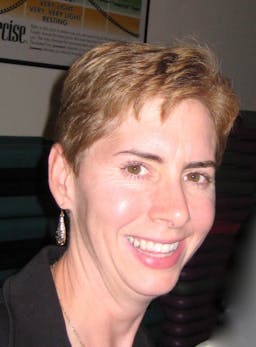Health and Empowerment in India
Jan 21, 2015
Story
In late 2009 I participated in the Sierra Club’s Global Population and Environment Program’s study tour to India. While we were there to hear about population, health and environment programs, many of the groups with whom we met wanted to talk about their work on HIV/AIDS and reproductive health and how they were empowering communities to deal with these major issues.
Seeing first-hand the impact of HIV/AIDS, the effects of various healthcare, education, and family planning initiatives, and the obstacles ordinary people were trying to overcome was an unforgettable experience.
I recently heard that one of the small organizations we spent time with is facing hard financial times and needing donations. Below is an excerpt from an article I wrote for the Sierra Club about the work of the Women’s Action Group/Chelsea (WAG). It is run by an amazing woman, Doe Nair, and I sincerely hope they find funding.
In New Delhi, we met with the Women’s Action Group/Chelsea (WAG), which has implemented a project on general health awareness with an emphasis on STIs and HIV/AIDS. It serves around 250 households in nine urban slums of NE Delhi, annually reaching around 500 children infected and affected by HIV and their families. This group uses a model of decision-making based on empowerment, and it strives to create confidence in a neglected community. WAG mobilizes communities by addressing the stigma and discrimination against people living with HIV/AIDS.
Our study tour spent the morning with WAG, whose peer educators took us out for site visits to meet with families struggling with having a family member(s) who is HIV positive. One family in particular has stuck in my mind. The husband, now deceased, had HIV and his two children have tested positive. The mother is employed by WAG/Chelsea, and worries about her kids, ages 13 and 9; she receives no support from her in-laws. The daughter, who is the eldest, was given peer-to-peer education while we are there, learning about fetal development. She is in the top of her class at school and wants to be a doctor. That was something that I found so encouraging about the visit, and about the WAG organization (and others like it), in particular. In the U.S. we can barely discuss these topics with kids, but in India, where it can be a matter of life and death, peer educators are trained in learning how to sensitize their peers on gender, sex, and reproductive health issues.
The director of WAG stated that the moment people see the damage diseases can cause they change their behavior (this applies mainly to women; men need to be educated on the importance of abstinence). Once people are empowered, they take care of not only themselves and their family, but also their community, and they learn to care about the environment. That is a goal that we should all strive to support.




